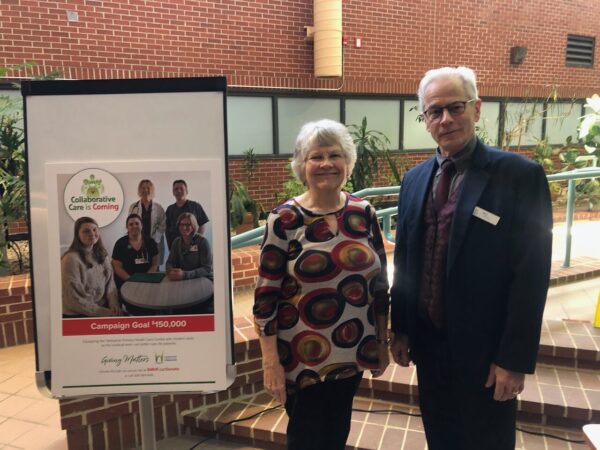Tantramar council has added glyphosate to the testing regime for Sackville and Dorchester water supplies, though public works director Jon Eppell told council there’s a good chance the herbicide won’t show up in amounts large enough to measure.
“We have tested for glyphosate previously and found that the concentration was not measurable,” Eppell told council on Tuesday night. “It was below the test sensitivity and well within the guidelines for Canada.”
Eppell told council that adding an extra annual test on six municipal wells would cost about $1800 a year, plus any extra time for contractors at Veolia Water Technologies to collect the extra samples.
Councillor Bruce Phinney made the motion on February 4, which originally asked council to add glyphosate and heavy metal testing to its regular water testing regime. But after Eppell explained that the municipality already does annual testing for heavy metals, the motion was amended to add just the glyphosate test on an annual basis.
Eppell explained that Sackville and Dorchester water supplies each have three wells with filter systems for iron and manganese. All wells are tested semi-annually for organics, annually for inorganics and heavy metals, quarterly for heterotrophic plate count, and monthly for bacteria, said Eppell.
“Given the region that we’re in, we expect iron and manganese to be high, which they are,” said Eppell. “And both of our water treatment plants filter for iron and manganese, so that after filtering, the water is in compliance. My recollection is that most of the other heavy metals are well within the parameters specified in the Canadian guideline for drinking water.”
Councillor Allison Butcher asked if there was any plan to follow up on the previous testing for glyphosate and Eppell told her there was no such plan, considering it is not required by Canadian or provincial guidelines.
“The testing that was conducted in 2023 was done at the request of a resident who was very concerned with the water supply,” explained Eppell, “and so it was done on a one time basis.”
Eppell also explained he does not think Sackville and Dorchester wells are at risk of glyphosate contamination. “The information that I’ve been able to glean is that glyphosate is a byproduct of pesticides, and that where you have well water supplies for municipal water systems that it is unlikely that it would transfer to the wells.” He also said Sackville has a well field protection area that provides a buffer from development and farming.
Stop Spraying New Brunswick publishes an online map showing areas of land where the government approved spray licenses for public and private forests. The 2024 map shows licenses to spray herbicides about 2.5 kilometres from the Ogden Mill Brook zone, where Sackville’s former water reservoir and current supply wells are located.

Eppell told council that both Dorchester and Sackville water supply systems are “fully in compliance with the approval to operate that’s issued by the New Brunswick Department of Environment and Local Government, and with the guidelines for Canadian drinking water quality.”
In the end councillors voted unanimously to spend the extra money and add glyphosate testing to the annual regime.



















